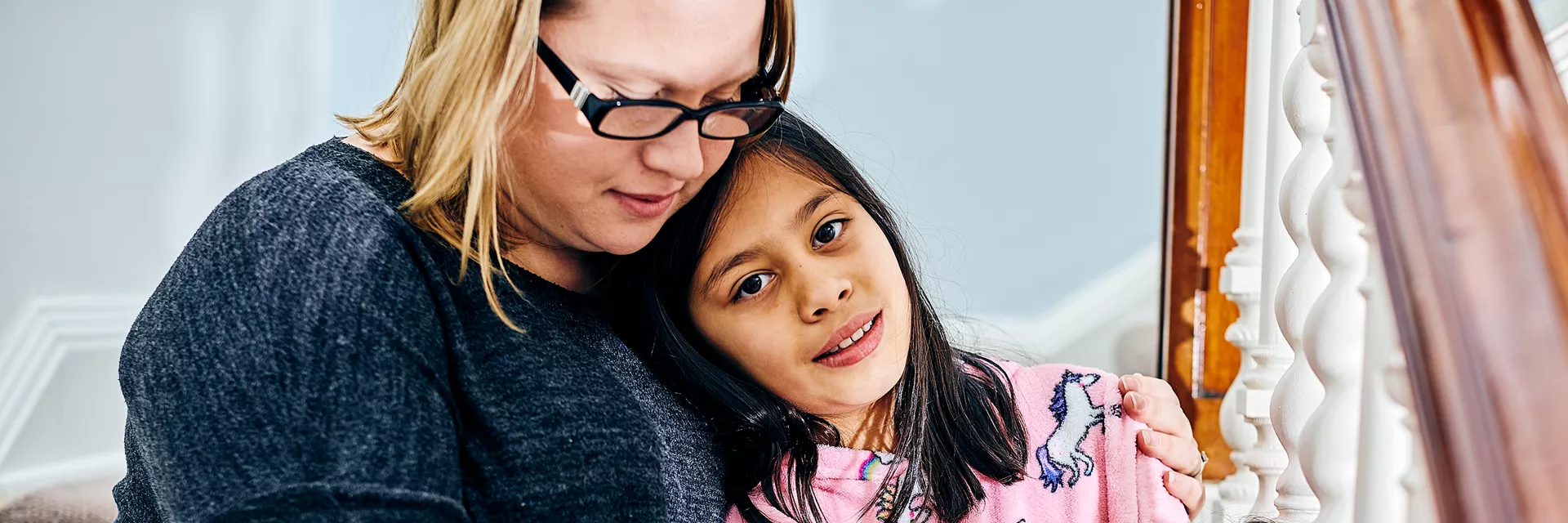
Can you work and foster?
While it’s preferable that somebody is available at home in case of appointments, meetings or to care for a child who may be out of school, we understand this isn’t always possible. So, depending on your personal circumstances, it may be possible for you to work and foster.
There are a number of things that may affect your ability to continue to work and foster a child. We’ve listed some of the things to consider below;
- Part-time or full-time – how many hours per week do you plan to work?
- Working hours – do you plan to work during school hours or outside of these times?
- Flexible employer – is your employer flexible in case of an emergency or an appointment with the school or the child’s social worker?
- Partner– do you have a partner or spouse who would be able to look after the child while you’re at work?
- Support network– if there was an emergency, do you have a family member or close friend who would be able to pick up the child from school and look after them until you return home?
- Age preferences– teenagers tend to be more independent and are less reliant on you as a foster parent, whereas younger children will require a lot more of your time. Would you consider fostering older children?
We always advise those considering fostering to get in touch, so we can have a quick chat about your personal circumstances and whether fostering is right for you.

Minimum requirements to foster
There are several minimum requirements to become a foster parent in the UK, including;
- You must be over 21 years old
- You must have a spare bedroom that has enough space to fit a single bed, wardrobe or chest of drawers and a desk
- You must have a legal right to work in the UK
It’s also important that you’re able to work as part of a team, be resilient and above all, have a strong commitment to changing the life of a child in care.
Can I foster?
We welcome individuals from all backgrounds to join our team of professional foster parents. You can be
- Male or female
- Single, married, divorced, cohabiting
- Straight, gay, bisexual or transgender
- From any ethnic group or religion
- Any age over 21 if you’re fit and healthy, and have enough energy to meet the needs of a child.
If you can give a vulnerable child a stable, loving home where they feel safe and valued, then we’d love to speak to you.

Previous experience with children
Some of our foster parents have previous experience with young people, either through work or bringing up children of their own. Others don’t have any previous experience but hold a strong desire to make a difference. While previous experience is beneficial, it’s not essential.
Our preparatory training programme will provide you with the skills and knowledge you need to make a life-changing difference to a child. Plus, with a circle of support – including social workers, therapists, fostering advisors, advisory teachers and other foster parents – you’re never more than a phone call away from specialist advice.
Frequently asked questions
Do I need a spare bedroom to foster?
Yes, you’ll need to have a spare bedroom to foster a child in the UK – this is set out in the National Minimum Standards for fostering where it states that every child in the foster home over the age of 3 should have their own bedroom.
Do I need any experience to become a foster parent?
While experience with children is beneficial, it’s not essential as our preparatory training course will provide you with the skills and knowledge you need to care for a child. Plus, with our professional circle of support – including social workers, therapists, fostering advisors, advisory teachers and other foster carers – you’re never more than a phone call away from specialist advice.
Some of our foster parents have previous experience with young people, either through work or bringing up children of their own. Others don’t have any previous experience but hold a strong desire to make a difference.
I have young children; can I still foster?
We work with children and young people who’ve had incredibly difficult starts in life and need a lot of care and attention to help them develop and reach their full potential.
This can be challenging for parents with young children, however, not impossible; it completely depends on your personal circumstances and whether you’re able to meet the needs of a child in care.
As part of the process to become a foster carer, we’ll provide you with lots of information about the role and what to expect, so you’re able to make an informed decision about whether fostering is right for you and your family at this time.
If you’d like to speak to one of our fostering advisers and receive friendly, no-obligation advice, simply complete our online form or give us a call on 0800 0857 989.
Can you foster if you have pets?
Yes, you can absolutely foster if you have pets – in fact, there are some fantastic therapeutic benefits of having pets in the foster home and we often see great companionship between pets and children in care.
We do have to make sure that pets have a suitable temperament to be around children and visitors in the home so that we can ensure the safety of the young people we place in your care.
Please note, we cannot accept applications from anybody who has a banned breed in the UK, as part of the Dangerous Dog Act.
I can’t drive; does this mean I can’t foster?
One of the important duties of a foster carer is around transporting a child in your care to various meetings, including contact with their family, therapy sessions (if needed) and school, which isn’t always nearby. In addition, you’ll also need to attend regular meetings and training at your local ISP centre. Therefore, having access to transport is vital for you to be able to fulfil the role of a foster carer.
Whether you can make it work as a non-driver will completely depend on your personal circumstances. For example, you may have a partner who will be able to do the school run, transport to contact and therapy and you can make alternative arrangements to get to the ISP centre for training and meetings, or you may have excellent public transport links within your area – for example, London and other major cities.
We always recommend that you speak to one of our fostering advisers, so we can understand your personal circumstances and see if we can find a way to make it work.
How old do you have to be to foster?
Foster carers must be at least 21 years old – this is a requirement that’s shared across all fostering services in the UK.
Speak to our team today
Whether you’re looking for more information or you’re ready to apply, we’re here to help you on your journey.
Enquiry Form
The company takes the requirements of GDPR seriously in ensuring the privacy and lawful processing of personal data provided to us by you. Please view our privacy notice which explains how the company will manage and use your personal data. This site is protected by reCAPTCHA and the Google Privacy Policy and Terms of Service apply.
